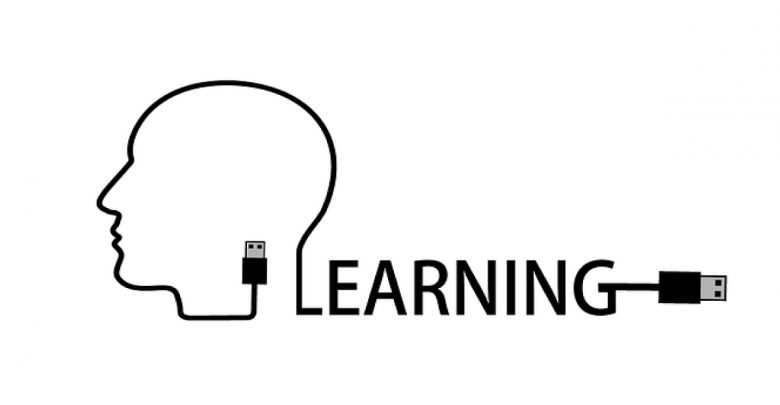Ways to Promote Transfer of Learning
What is "transfer of learning" and what can trainers do to increase the odds of it happening?

Introduction:
All content needs to be taught to the application and creation level or higher. Sheer instruction alone does not guarantee the transfer of knowledge.
Transfer of learning occurs when the knowledge we acquire moves from our working memory to long-term memory and is retrievable. There are many things that impede this process. As a facilitator, we need to make the information we provide to learners manageable, and learnable.
Content:
There are several strategies to increase the likelihood that learners will be able to deepen their understanding and apply knowledge to other areas. These strategies include:
- Questioning-What kinds of questions are you asking in your training.
- Collaboration-Increase the opportunities your learners have to collaborate with each other. This helps to generate ideas and model thinking.
- Assessment-Do an audit of your assessments.
- Reflection-What opportunities are your learners given for reflection?
- Project Based Learning-This process requires learners to apply skills and concepts to real world situations.
- Think Alouds-Model some examples of transfer for specific skills by doing a Think Aloud. As you give the learners one example ask them to generate another. The more you model, the more they will begin to understand how to think at this level.
Costa and Kallick (2000) listed Transfer of Learning as one of 16 Habits of Mind that would be beneficial for students/learners to learn. Costa (2008) suggested that people learn from their experiences. He added that when they solve problems or face challenges, they call on their prior knowledge in order to be successful.
Strategies that facilitators can use to support learners/ students to transfer information from one context into another include:
- Teaching them to use graphic organizers in all subject areas–the more complex, the better (Dexter & Hughes, 2011)
- Teaching them to use metacognitive strategies (Dean & Kuhn, 2003; Halpern, 1998)
- Engaging them in Problem-Based Learning (PBL) (Dixon, 2012; Hmelo-Silver, 2004)
- Inviting them to play digital games (Swanson, 2014)
- Teaching them to take strategic notes on what they are learning (Lee, Lan, Hamman, & Hendricks, 2008)
- Inviting them to take tests a week after they have been exposed to information, as well as a month later, and a year later (Carpenter, 2012; Rohrer, Taylor, & Sholar, 2010)
- Encouraging them to activate their prior knowledge and set goals for learning (Malmberg, Järvenoja, & Järvelä, 2013)
- Inviting them to share what they are learning with others by creating a video presentation (Hoogerheide, Loyens, & van Gog, 2014)
- Helping them to feel confident in subject areas, which will make them more likely to transfer their knowledge to other areas (Keiler, 2007)
- Encouraging them to use their prior knowledge in new contexts (Cleary, 2013)
- Showing students how what they are learning links with what they have previously learned and with what they are learning in other subject areas (Bhatti, Battour, Sundram, & Othman, 2013)
- Providing them with coaching on what they have learned (Joyce & Showers, 2002)
- Engaging them in talking about contexts in which they might apply what they are learning (Nikandrou, Brinia, & Bereri, 2009)
- When introducing lessons, showing students how what they are learning links with what they have previously learned (Costa, 2008)
Exercises:
How to apply it in everyday work
Which of these strategies might you use in the coming weeks to help learners to transfer what they are learning into a variety of contexts?
- Questioning-What kinds of questions are you asking in your training? Did you plan already a set of questions that you could use to support the transferability of learning after the activity? Are these set of questions a possible tool that you can replicate in different activities?
- Collaboration– How do you foresee the interaction and cooperative learning among participants in the activity? Do you plan a specific way (other than discussion and sharing) in the working flow for engaging them in collaborative work?
- Assessment–Do your assessments (final feedback in plenary or in subgroups) require learners to think conceptually and apply their knowledge to unfamiliar situations? If not, add some. These should be your questions that score at the Advanced level.
- Reflection–What does this look like in your training session? Through the process of reflection, learners can have highlights regarding concepts and skills. Make sure that the reflection process has both a written (self-reflection and/or taking individual time to write down some personal inputs) and a communicative component.
- Project Based Learning-How do you plan this? Do you have specific activities?
- Think Alouds-Model some examples of transfer for specific skills by doing a Think Aloud. In your next training, which modeling process you will be able to provide? Did you had already prepared or are you using your personal experience?
Reflection Questions:
- How much am I really planning in advance the planning for the transferability of learning?
- Do I have a vision about how should be done?
- How much I can really follow up the process of transferability in an international training context?
Do your assessments offer questions that require transfer? If not make some changes. The learning will deepen along with the engagement.
Cathy Beck and Dr. Heidi Pace





